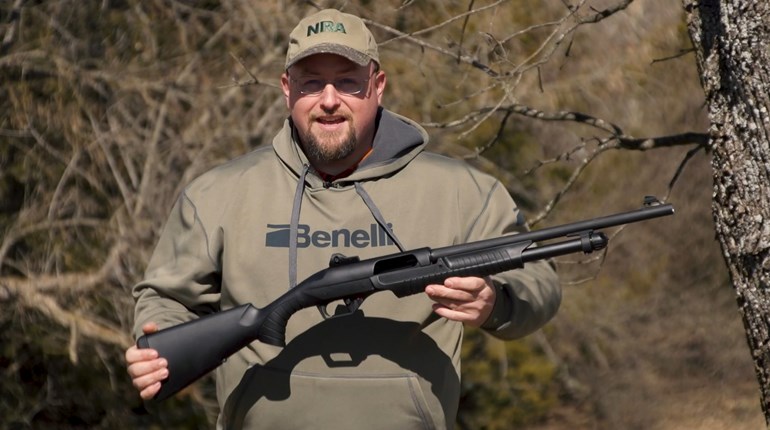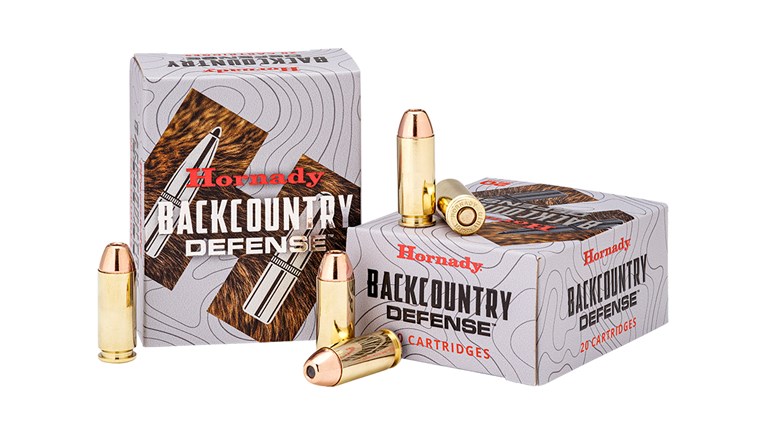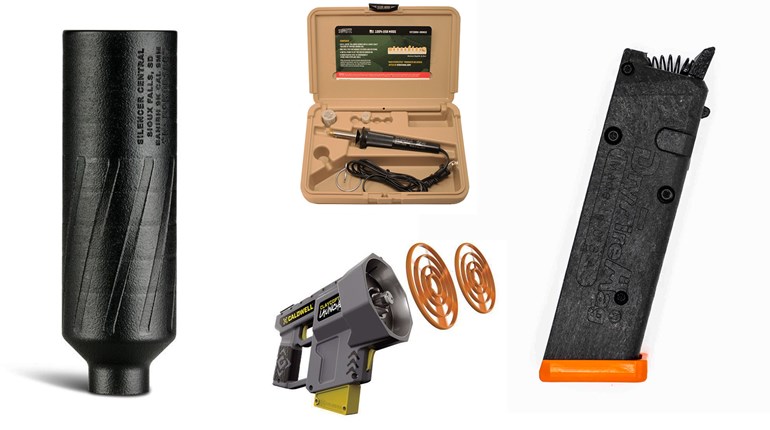
Serious training in the use of a handgun for self-defense usually begins with the student using a full-size pistol. That’s because these size guns generally fit an adult’s hand better than small handguns like the line of mini revolvers from North American Arms. So equipped, an individual with no shooting experience can become reasonably proficient in the course of a serious week’s training using a full-size gun. In such a training environment, new shooters can become both fast and decisive in dealing with any threat presented. Unfortunately things change dramatically when we leave the training facility and head home to daily life.
I’ve been fortunate enough to spend a lot of time at Gunsite Academy, and I’m a firm believer in the school's doctrine and training. But like most people once they return home, I get lazy and do what’s convenient rather than what’s prudent. A quick trip to gas the car, get a haircut or satisfy my craving for a chorizo-and-egg burrito frequently involves me leaving the house less than fully prepared for danger.
In fact, many tend to go for the tiny solutions that take about two seconds to grab and drop into a pocket, like a Ruger LCP II or a Kel-Tec P3AT. You know what else takes just seconds to grab, along with your pocket .380? A North American Arms mini revolver. In the space of a few seconds, you could have a primary and a backup gun on your body, ready to face a range of scenarios. I’ve tried three solutions from North American Arms, each stoked with five rounds of 22 Mag. ammo.

NAA’s five-shot single-action mini revolvers (or derringers if you prefer) have been around for years, but recently a couple new models have been added to the line that facilitate loading/reloading the little guns. My first NAA acquired several years ago was the Pug, which is equipped with a 1-inch barrel and requires the cylinder to be removed from the gun to load. If reloading, the cylinder rod must be used to eject empties from each chamber after which the chambers are refilled, the cylinder reinserted in the frame and the cylinder rod reinstalled.

The Pug has a X-S Sights small-dot tritium front sight and a V-notch rear, making it the easiest model for me to shoot quickly and accurately, particularly in dim light. Yes, it’s slower to reload and requires a certain dexterity which can be acquired with practice, but the cylinder does provide you five rounds of 22 Mag. to solve your dilemma before forcing a reload. The Pug is my “go to” Lilliputian, partly because it’s the smallest of the three guns and because of the dandy pocket holster that holds an additional five rounds. It doesn’t matter what you’re wearing; as long as you have one pocket somewhere, you simply grab the package and put it in that pocket as you head out the door.
The second NAA I tried was the Sidewinder, which is slightly longer than the Pug due to a 1.5-inch barrel. As the name suggests, the Sidewinder has a swing-out cylinder, which is released and relocked by the ejector rod located under the barrel. The Sidewinder can be reloaded more quickly because the cylinder swings out far enough to expose all chambers at once. Keep in mind, the ejector rod does not push empty cases clear of the cylinder; you must pull each empty all the way out of its chamber.

By using one of Tuff Products Quick Strips, you have instant access to all five reloads with one grab and can fill two chambers at a time. You will need to practice reloading due primarily to the tiny ejector rod locked in place under the barrel. Those with sausage fingers beware! Sights consist of a small bead up front and a rounded notch in the rear of the top strap; more than enough to achieve hits on man-size targets at ranges inside 15 yards.
NAA’s latest offering is the Ranger II. It’s the biggest of the three guns with a 1.63-inch barrel and a reloading system like the old Schofield, i.e. the barrel rotates downward exposing the face of the cylinder to the shooter and the star pushes all 5 empty cases slightly out of their chambers. From then on it’s like the Sidewinder; pick out the empties, grab your Quick Strip and reload two rounds at a time.
I found the Ranger’s frame latch much easier to work than the Sidewinder ejector rod, but both can be mastered. The Ranger also has a small bead for a front sight, but the rear sight is a more conventional square notch cut into the frame latch. Again, not as visible as the Pug sights, but more than adequate for close-range confrontations.

All three guns require the hammer to be put on half cock (like old-time single actions) so the cylinder can move out of the frame. The Pug has pebble-grained rubber grips, while the two newer guns had laminated-wood panels. The Pug’s grips are not as attractive, but the grainy texture helps keep the gun stationary inside the pocket. All three have safety notches in the cylinder face where the hammer can rest, allowing the guns to be carried fully loaded with five rounds. Kind of like the 1858 Remington cap-and-ball revolver and the 20th-century Ruger Old Army.

Each of the three guns can also be purchased with two cylinders; one in .22 Mag. and one in .22 LR. I highly recommend the .22 Mag. cylinder if your purpose is having a backup gun for self-defense. Additionally, if you’re headed into the wilderness, the .22 Mag. snake-shot loads are much more effective than the .22 LR. That said, I’d suggest getting both cylinders. Few things are more fun (or more economical since the end of the Great Ammo Shortage) than plinking with a .22 pistol, particularly one the size of a NAA. The company also has some interesting accessories, including cool holsters for either concealed carry or wearing on the belt for showing off in camp.



































